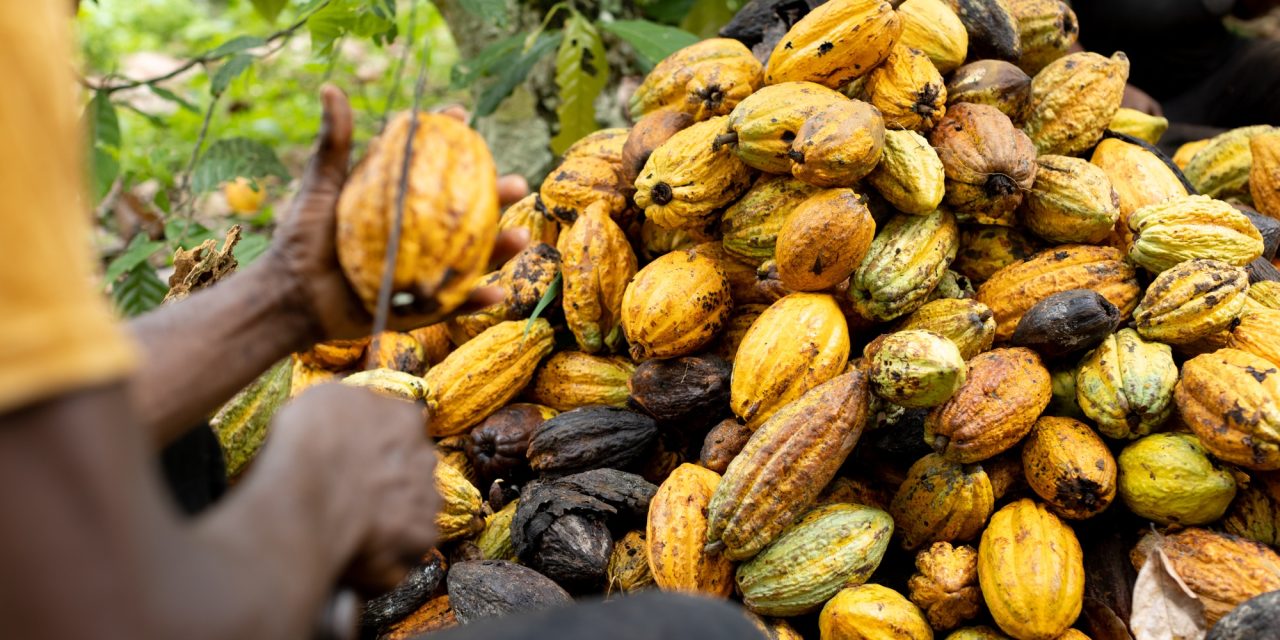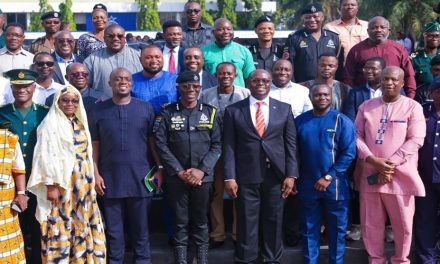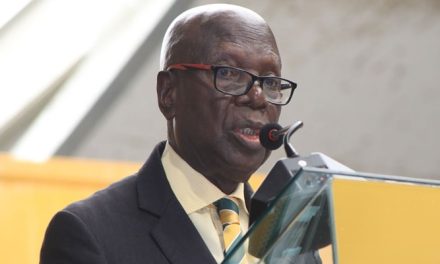The government has acquired $100 million from the World Bank to repair overaged and unproductive cocoa fields, thereby improving cocoa production and farmer livelihoods.
Joseph Boahen Aidoo, Chief Executive of the Ghana Cocoa Board (COCOBOD), revealed this to journalists during a field tour of some cocoa plantations in Assin Fosu, Central Region, noting that rehabilitation work would be provided in six districts of Ghana.
“This action will undoubtedly improve Ghana’s cocoa production. It is believed that this operation would result in young cocoa trees within the following two years,” he said.
Mr. Aidoo said it was regrettable that some farmers were caring for cocoa trees that had neither pods or flowers and that, despite using weedicides, they got no benefit and were consequently impoverished.
He claims the government has stepped in to revive these abandoned cocoa plantations, aided by funding from the World Bank.
He named several districts that will gain from the cocoa rehabilitation program, including Assin Fosu, Nkawkaw, New Edubiase, and Juaso.
As per the agreement, the rehabilitation would be completed in phases, but the CEO of COCOBOD said that all necessary conditions had been satisfied for the government to obtain the cash, enabling the government to start working on the project immediately.
In addition to Swedru, Nyarkrom, Ejumako, Siechiem, Assin Fosu, and Fosu Adiembra, the COCOBOD overlord has also traveled to other locations.
In order to help increase cocoa production, Mr. Aidoo taught farmers in towns including Jacobu, Armah, and Sampreku effective management techniques during his tour.
Additionally, he taught the farmers the value of implementing sensible agricultural practices like pruning and routinely testing the fertility of their farms in order to increase productivity.
“If farmers had adhered to basic farming principles, the majority of them might have yielded more cocoa pods,” he said.
The communities also hosted a number of interactive sessions to discuss the major issues facing the cocoa industry and potential steps that cocoa farmers may take to help the government boost production.
At their meeting at Gomoa Afransie, Mr. Aidoo commended the farmers for their long-standing services to the nation, even in the face of occasionally challenging circumstances that led to lower harvests.
The government, he said, has taken steps over the years to guarantee that cocoa farming would continue to bring in money for both them and the nation’s expansion.
In spite of the government’s efforts to reach production targets being hampered by smuggling and fluctuating market prices, he told them, this was also one of the reasons why the producer price of cocoa has continuously been raised for the benefit of farmers.
Rather than utilizing those whose sole goal is to sell and smuggle them to neighboring nations, he pushed the farmers to sell their cocoa beans through recognized organizations.
The Chief Executive of COCOBOD was especially appreciated by the farmers, who also asked him to assist in enhancing road access to their farms and to push the government to increase the price that cocoa producers receive.
In response, Mr. Aidoo gave farmers assurances about the government’s ongoing commitment to supply them with the necessary agricultural materials to improve their harvests and maintain their way of life.
BY: APPIANIMAA MERCY





